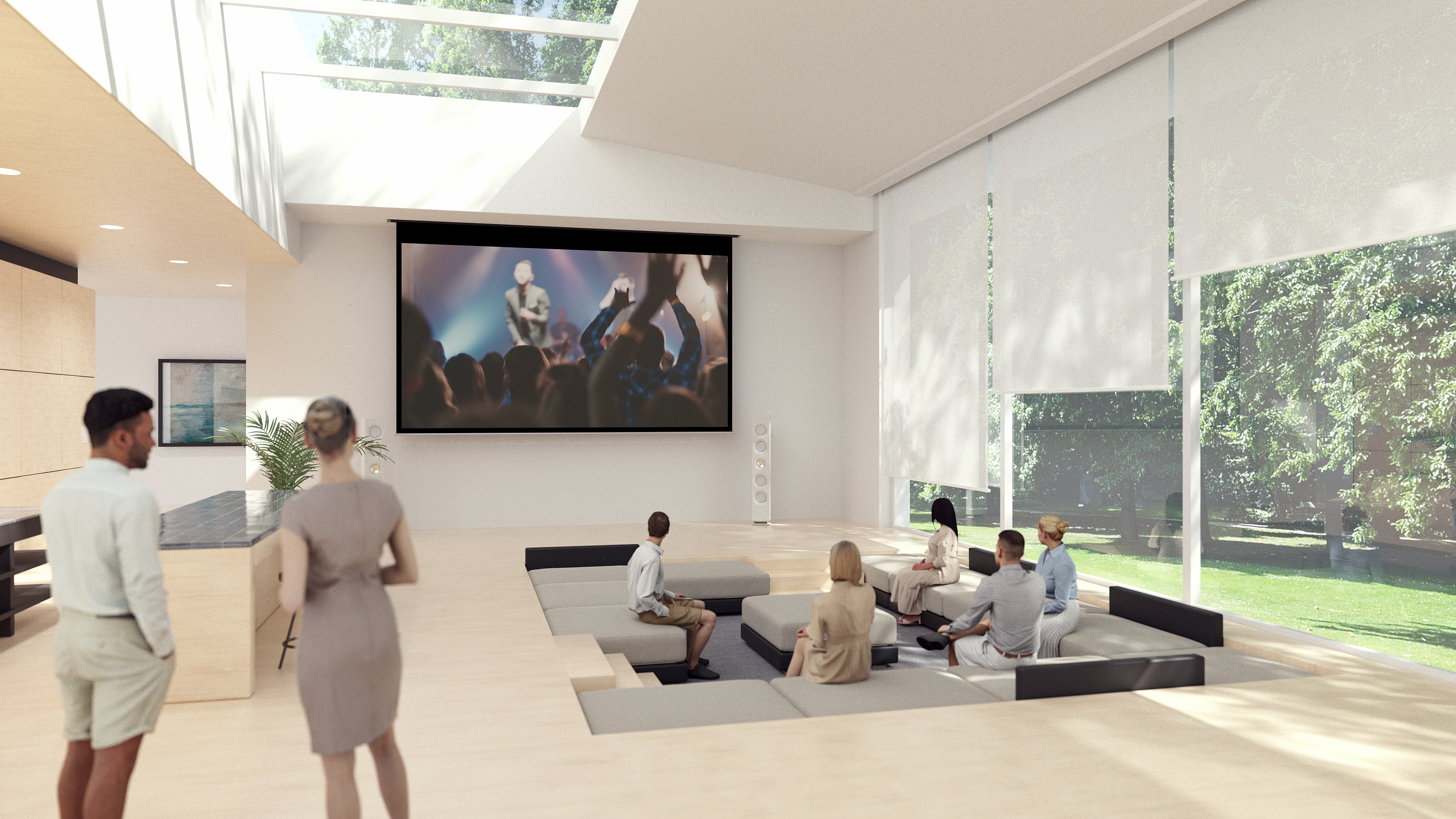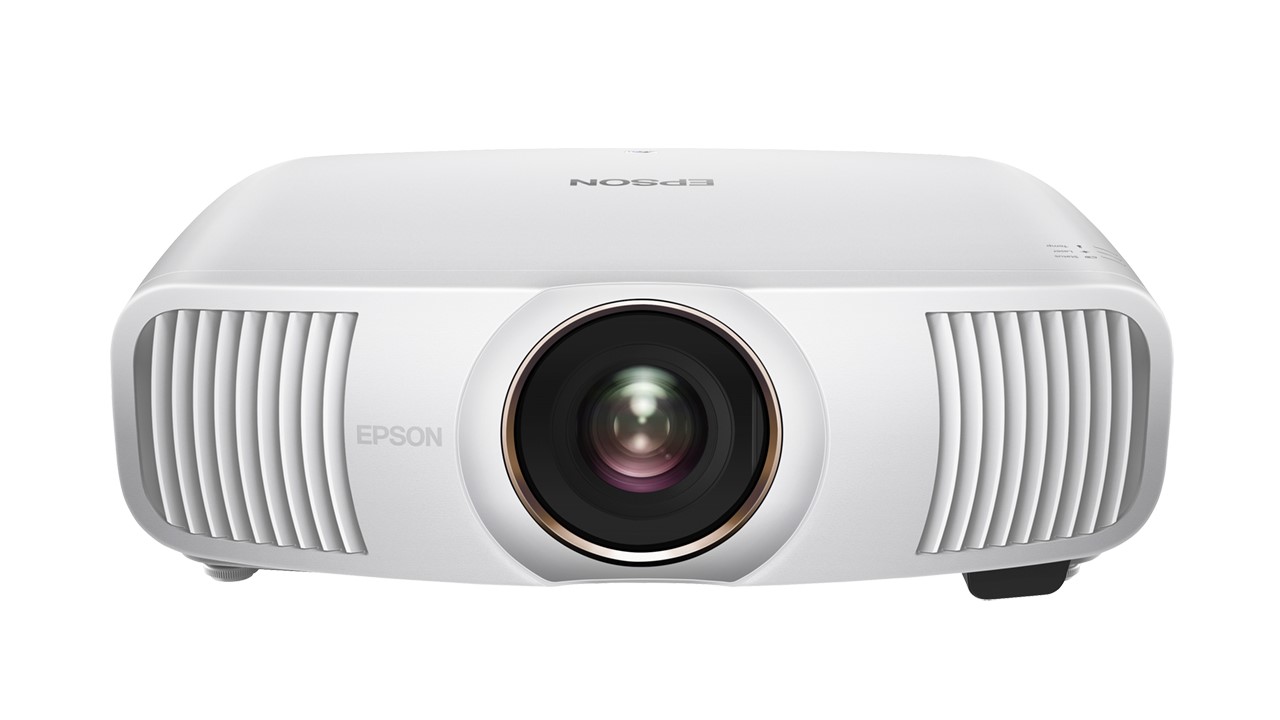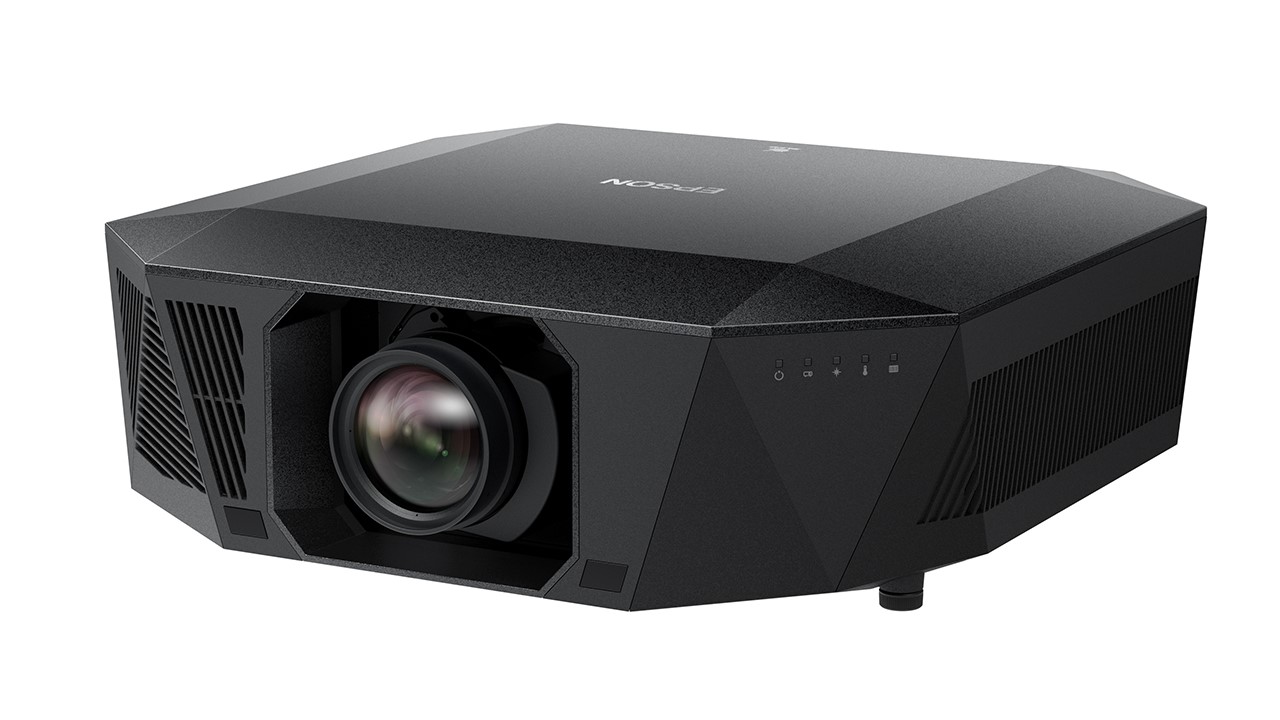
- Epson has launched a trio of new 3LCD laser projectors
- The new models have 4K 120Hz support and up to 10,000 lumens brightness
- High brightness and a living room-friendly design make the Q-Series an alternative to microLED TVs
With CEDIA Expo, a showcase for the latest and greatest developments in home theater technology, just around the corner (September 5-7, 2024), related new gear announcements are rolling in. First up is Epson, which just dropped news of the Epson Q-Series, a trio of new 3LCD laser projectors aimed at the high-end custom installation market.
The Epson Q-Series consists of three high-brightness models designed for multipurpose living spaces. However, like the best 4K projectors, they can also be installed in traditional home theater environments and include the contrast-enhancing UltraBlack technology found in previous models such as the Epson LS12000.
The entry-level Q-Series model is the QB1000 ($7,999, around £6,160 / AU$11,900), which features Epson’s VRX Cinema Lens and features dual HDMI 2.1 inputs with 4K 120Hz and ALLM support. Between its HDMI 2.1 connections and specified under-20ms input lag time, the QB1000 could be the perfect big-screen gaming projector.
Brightness on the QB1000 is specified as 3,300 lumens (color and white) and HDR support includes the HDR10+, HDR10, and HLG formats. It uses Epson’s QZX Picture Processor, has a laser light source rated for 20,000 hours, and features a 3-axis motorized lens shift to ease setup and installation.

The QL3000 ($14,999, around £11,550 / AU$22,300) and QL7000 ($29,999, around £23,100 / AU$44,600) are “body only” projectors that can be paired with any of Epson’s High-Precision lenses. This design enables a wide range of installation options, including floor or ceiling-mounted ultra short throw setups.
Epson’s QL3000 and QL7000 provide the same features found in the QB1000. They are specced for up to 6,000 and 10,000 lumens and support screen sizes up to 300 inches. According to Epson, these new models are more compact than their high-brightness competition – something made possible by a new, smaller light source with a vapor chamber heatsink – making them a better fit for bright living spaces. Both projectors are available in black or white and have a unique, angular case that should also complement any room they’re installed in.

Epson Q-Series: a cheaper alternative to microLED TVs?
With its new Q-Series projectors, Epson is taking on a range of display competitors in the high-end custom installation space. The main ones are flagship projectors from brands like Sony, Barco, and Digital Projection, but massive microLED video walls also appear to be in their sights.
Making its new projectors compact and design-forward should give Epson an edge over its competition in the high-brightness projector space, which is dominated by industrial-looking models that don’t exactly blend in with a typical living room environment.
Projectors such as the Sony VPL-GTZ380, a model that is specced for the same 10,000 lumens brightness as the Epson QL7000, are fairly massive and best hidden away from sight. Equally important, they are massively expensive, with the Sony priced at $80,000 compared to the QL7000’s $29,999.
A compelling feature of Epson’s two new top projectors is the option to pair them with an ultra-short throw lens. This will allow for the projector to be installed close up to a screen in a cabinet or ceiling rather than requiring a long throw distance to project large-scale images. The best ultra short throw projectors, such as the Epson LS800, are already bright enough to be installed in typical living room spaces, but bumping brightness up to the 6,000-10,000 lumens range will make pictures look even more vivid and dynamic. And with prices topping off at $29,999 for the projector, Epson’s new models will also provide a budget-friendly alternative to massive microLED TVs, which currently sit in the $100,000 and up range.
The QB1000 will be available in September 2024, and the QL3000 and QL7000 in October 2024. We look forward to reporting on them further at CEDIA Expo 2024, where TechRadar will be on site for Home Theater Week coverage.







